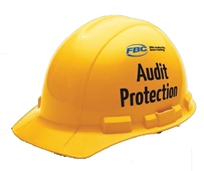Last updated: Oct. 6, 2014
If you run a farm or other small business, be prepared for a tax auditor’s call.
Previous reviews of Canada Revenue Agency’s (CRA) practices by the Canadian Attorney General’s office flagged “small and medium enterprises” (SMEs) for high levels of “non-compliance” with tax legislation.
The report recommended more rigorous CRA audits for this taxpayer group.
Many businesses fall into CRA’s definition of small and medium enterprises (SMEs), including:
- Self-employed individuals
- Small and medium-sized corporations
- Partnerships
- Trusts
Small corporations include those with annual reported revenues below $1 million. Medium corporations have annual reported revenues of no more than $250 million.
If you fall into the SME tax category, be aware that you’re a prime audit candidate.
Non-compliance with tax legislation could involve failure to file a tax return or register to collect the GST/HST, incorrectly reporting income or tax deductions, or failing to remit taxes owing.
Reasons for Non-compliance
Such acts occur because taxpayers:
- Don’t understand the income tax act and their tax obligations
- Intentionally choose to avoid paying tax
- Simply make mistakes on tax returns
Today, the agency continues to beef up its audit processes aimed at SMEs. Initiatives include hiring additional auditors and enhanced auditor training.
Auditing SMEs requires special techniques because these enterprises often lack the sophisticated internal controls auditors normally use to evaluate the accuracy of amounts reported.
This is particularly true in industries where cash transactions are common, such as construction and trades, and where total sales are under $1 million.
In conducting a thorough field audit of an SME, auditors put less reliance on sales records maintained by the taxpayer. Instead, they verify reported sales by using new indirect verification of income (IVI) methods, including:
- Net worth assessment
- Third-party information
- Sales projections based on key input costs
- Bank deposits (including a review of personal bank and credit card accounts for all family members)
- Household budget compared to Statistics Canada data
Learn more about what may get the attention of CRA.
Receive the Top 6 Audit Triggers to Avoid.

